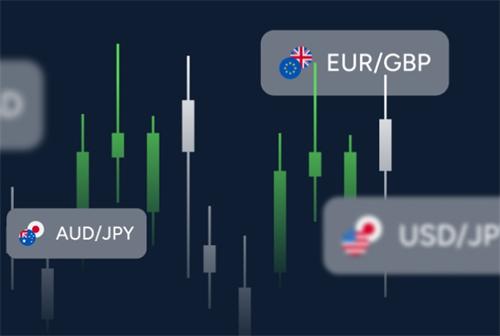How to Get Involved in the Forex Market?
As the largest financial market in the world, the forex market sees daily trading volumes exceeding $1 trillion, attracting the attention of countless investors. For many, forex trading may seem straightforward—just select a currency pair, analyze trends, buy when the market is up, and sell when it’s down, with the hope of making substantial profits. However, forex trading is far more complex than it appears. It involves not only fluctuations in exchange rates but also factors such as national economies, politics, and international conditions.
Characteristics of the Forex Market:
The forex market has several key differences from the stock market. Firstly, Forex trading is decentralized and takes place globally across banks, financial institutions, exchanges, and other venues. Unlike the stock market’s bidding system, forex trading uses a quoting system, where large banks, financial institutions, or brokers provide buy and sell prices, and investors trade based on those quotes.
In addition, the forex market operates 24 hours a day, five days a week (excluding weekends), allowing investors to trade at any time based on global market conditions. Unlike the stock market, which has restrictions on price fluctuations (e.g., circuit breakers), the forex market has no such limits, meaning investors can buy and sell at any time according to market trends.
How to Enter the Forex Market?
There are two main ways to enter the forex market: spot trading and margin trading.
1. Spot Trading
Spot trading refers to directly exchanging currency at the current market rate. This trading method is simple and easy to understand, making it suitable for those planning to invest in the forex market over the long term. Investors primarily focus on the long-term trends of exchange rates in this type of trading.
2. Margin Trading
In contrast to spot trading, margin trading enables investors to use leverage to manage larger positions with a relatively small amount of capital. Essentially a form of futures trading, margin trading only requires investors to deposit a portion of the total trade value as margin to execute larger transactions. This method allows investors to go long (buy) or short (sell) and profit from market fluctuations.
However, margin trading comes with higher risks. Choosing a reliable trading platform is crucial. Traders should select a reputable platform to ensure the safety and liquidity of their trades. Additionally, it’s important to comply with regulations, especially when opening an account with foreign platforms, and carefully choose one that is trustworthy.
Essential Knowledge for Forex Trading:
While the simplicity of forex trading attracts many investors, entering the market without sufficient knowledge can be highly risky. First, investors must understand how exchange rates are quoted and the factors that influence rate fluctuations, such as economic data, international politics, unexpected events, and interest rate policies. The forex market is highly event-driven, so staying informed is essential.
For beginners, reading foundational textbooks can help build a basic understanding. For instance, textbooks like International Financial Markets from finance schools can help new traders understand the fundamentals of forex trading. Avoid falling for "get-rich-quick" schemes or copy-trading software, as these are often scams.
Risk Management:
Effective risk management is crucial in forex trading, particularly when engaging in margin trading. The core elements of risk management include credit risk, market risk, and money management.
Credit Risk Management:
There are many fraudulent platforms that deceive investors by operating opaquely and stealing funds. It is essential to select a legitimate, reputable platform to ensure the safety of funds and fairness in trading.
Market Risk Management:
The forex market is influenced by many external factors. Unexpected events or significant data releases can cause market volatility, potentially magnifying losses. Therefore, investors need to be prepared, for example, by setting stop-loss orders and managing their positions carefully. During periods of high volatility, be ready to react quickly to prevent significant losses due to market swings.
Money Management
Regardless of the leverage used, investors should always keep sufficient reserve funds to handle market uncertainty. It is advisable to open positions gradually rather than investing too much capital at once. Also, investors should consider the worst-case market scenarios to ensure their funds can withstand potential risks.
Conclusion
Forex trading, as a high-risk, high-reward investment method, attracts many investors. However, to profit steadily in this market, it’s essential to have a deep understanding of the market, a solid knowledge base, and a rigorous risk management strategy. For new investors, thorough learning and preparation before entering the market are indispensable.







